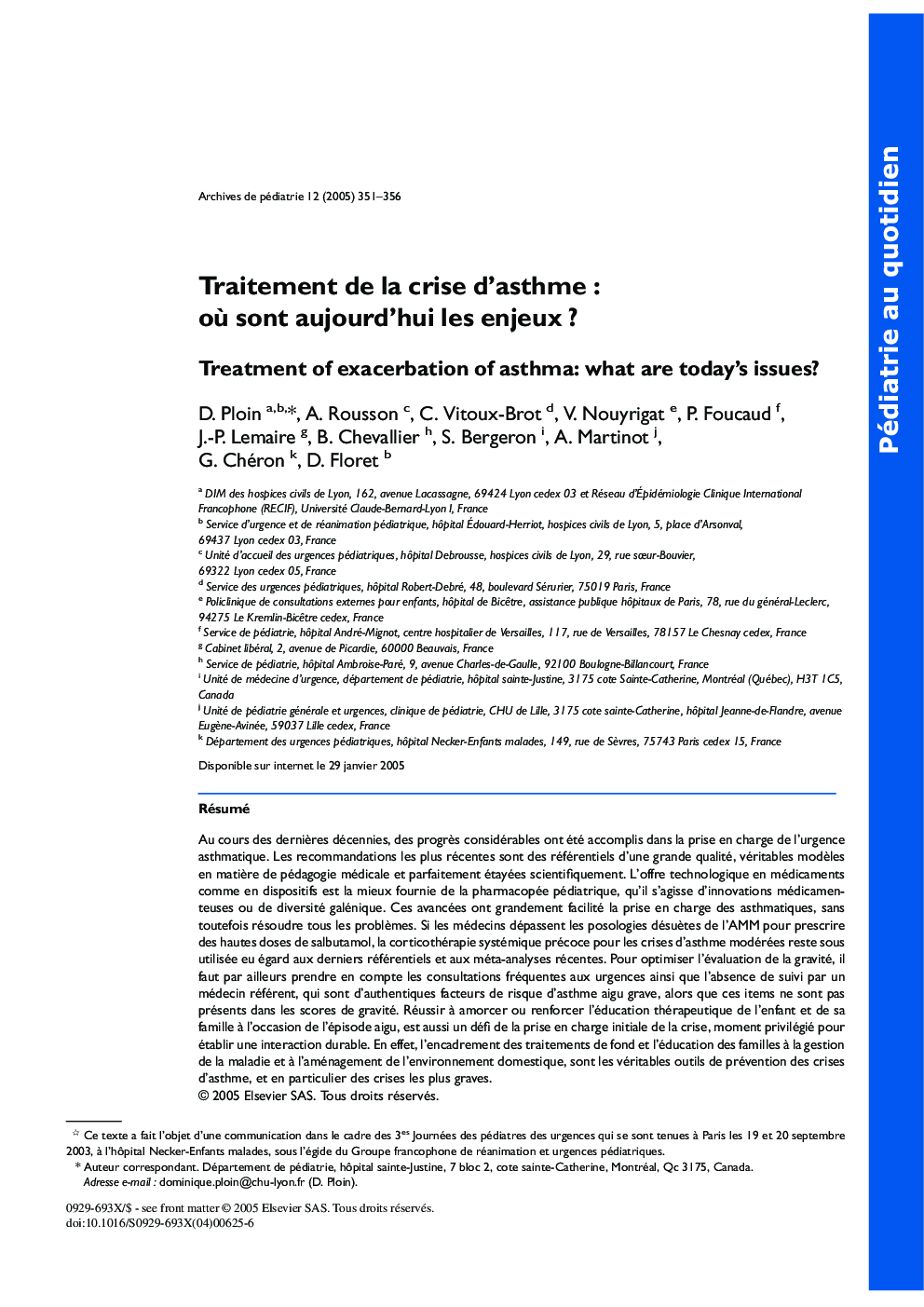| Article ID | Journal | Published Year | Pages | File Type |
|---|---|---|---|---|
| 9370281 | Archives de Pédiatrie | 2005 | 6 Pages |
Abstract
During past decades, major progress has been accomplished in the management of acute asthma. Most recent recommendations include evidence-based rationale. The improved quality of clinical guidelines makes them efficient models for medical education. The pediatric pharmacopoeia provides a great variety of choices of drugs as well as for asthma medical devices. These innovations dramatically facilitated the medical management of asthmatic children, but they did not solve all problems. Physicians now use higher doses of salbutamol, but the early prescription of systemic glucocorticoids for moderate exacerbation of asthma is still underused, given the most recent clinical guidelines and meta-analysis. Furthermore, repeated emergency department visits to the wards and lack of primary care physician should systematically be appraised when evaluating severity, as they are both major risk factors for severe exacerbations, even though they are not considered in acute asthma severity scores. Finally, initiating (or reinforcing) patient education at the time of exacerbation also presents important challenges, as emergency visits are a favorable moment to commence the therapeutic education of the child and his family. Indeed, framing the controller medications and educating families about how to manage the disease and to improve their domestic environment are the genuine tools available for the prevention of asthma exacerbations, and particularly those most severe.
Keywords
Related Topics
Health Sciences
Medicine and Dentistry
Perinatology, Pediatrics and Child Health
Authors
D. Ploin, A. Rousson, C. Vitoux-Brot, V. Nouyrigat, P. Foucaud, J.-P. Lemaire, B. Chevallier, S. Bergeron, A. Martinot, G. Chéron, D. Floret,
